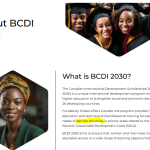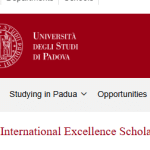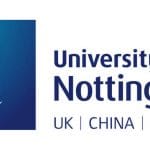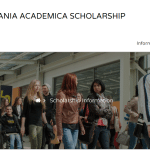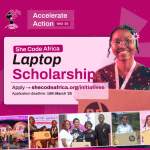Call for applications for UNESCO-Equatorial Guinea Fellowship Programme 2025/2026 for Young Women Scientists in Africa. Apply below.
When is Application Deadline:
31st March 2025.
Table of Contents
Tell Me About UNESCO-Equatorial Guinea Fellowship Programme:
Globally, women make up only 33% of researchers (UNESCO Science Report 2021). The latest figures from the Institute for Statistics show that only 32% of researchers in Sub-Saharan Africa are women (UNESCO Call to Action to Close the Gender Gap in Science). These disparities, whether regional or gender-related, can also be explained by the lack of resources allocated to scientific research, particularly in Africa, where spending on scientific research represented only 1.01% of world spending in 2015 and 3.5% of world spending on publications in 2018 (UNESCO Science Report 2021). These gaps have a direct impact on scientific research, limiting women’s and girls’ access to equitable opportunities to engage in scientific careers.
In this context, UNESCO and the Republic of Equatorial Guinea are launching for the first time a fellowship programme entirely dedicated to young African women scientists. This initiative aims to bridge the persistent gaps on the African continent. It is designed to offer targeted support and focuses on promoting equal opportunities in science, by creating concrete opportunities for young women to become actively involved in various life science disciplines.
The Young African Women Scientists Programme, established in 2024 by UNESCO’s Executive Board and funded by the Republic of Equatorial Guinea, aims to promote and support two exceptional young African women in the life sciences. The program seeks to encourage their active participation in their countries’ scientific and technological development.
Each year, two young women will be awarded a grant of $25,000, with a total of $50,000, to advance their research and foster a promising scientific career.
Type:
Fellowship
Who can Apply?
- Must hold African nationality and conduct research at a recognized laboratory in Africa.
- Must be under 45 years of age at the time of application.
- Must hold a PhD in the field of life sciences.
- Engaged in scientific research within the field of life sciences, focusing on advancing knowledge and contributing to sustainable development.
Please note that only Governments of all African Member States, in consultation with their National Commissions can submit applications.
Which Countries are Eligible?
African countries
How Many Awards?
Not specified
What is the Benefit of UNESCO-Equatorial Guinea Fellowship Programme?
$25,000 grant
How to Apply:
Applications must be pre-registered via the following online link www.unesco.org/egip/account-request.
Once pre-registered, the candidate will be invited to complete a comprehensive online submission form in English or French, which should include the following elements:
- A proposal outlining an innovative research idea that can be completed within one year, considering the facilities available to the applicant.
- A detailed work plan, including the project’s activities, objectives, and expected outcomes, with a timeline showing completion within one year.
- A comprehensive budget breakdown for the $25,000 grant, clearly demonstrating how the funds will be allocated to implement the proposed project (e.g., materials, equipment, travel, publication fees, etc.). Given that the Grant Disbursement will be as follows:
- $23,000 of the grant will be provided in advance at the start of the project.
- $2,000 will be provided upon submission of a final report at the end of the fellowship period, detailing the project’s results and the use of the funds.
- A summary of past research, including publications and other supporting documents, with significant publications highlighted.
- A detailed CV, including academic qualifications, positions held, research experience, and current work.
- One or two recommendation letters from a thesis supervisor or peer in the research field (who is not part of the candidate’s immediate environment).
Please note that self-nominations shall not be considered as well as incomplete applications.
GOODLUCK!




